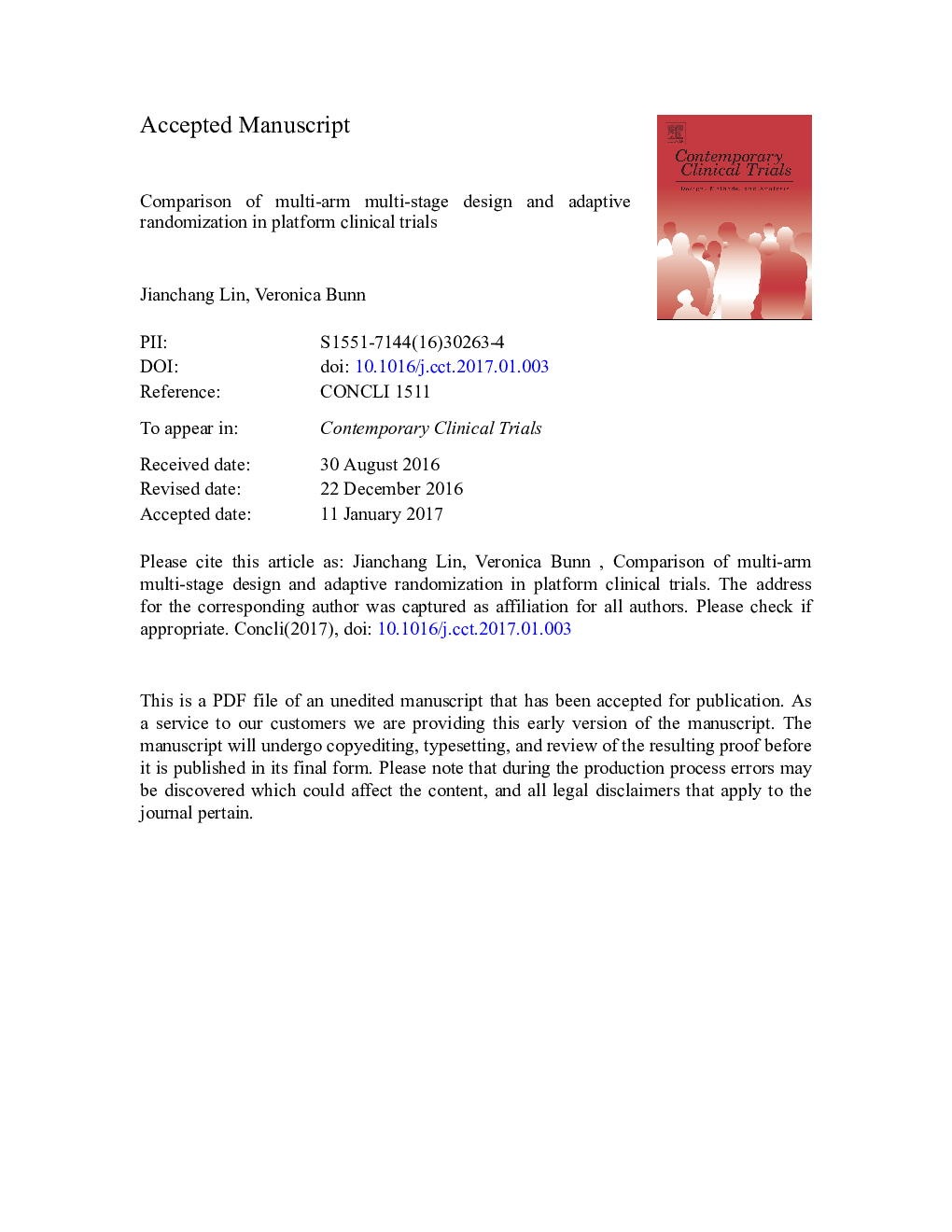| Article ID | Journal | Published Year | Pages | File Type |
|---|---|---|---|---|
| 5678584 | Contemporary Clinical Trials | 2017 | 31 Pages |
Abstract
Platforms trials are clinical trials that allow for concurrent evaluations of multiple treatments, thus allowing for more efficient and ethical studies compared to traditional two-arm trials. Conventional group-sequential multi-arm multi-stage (MAMS) designs use pre-specified stopping boundaries and treatment selection rules to determine if experimental treatments should be dropped. Flexible MAMS designs allow for interim modifications to the design plan without compromising error rates. Bayesian response adaptive randomization (BRAR) designs increase patient allocation to treatment arms that are performing well during the course of the trial. In this paper, we compare these two major methods and their extensions under several scenarios in the platform trials setting. Results show that BRAR and flexible MAMS designs have comparable power and type 1 error rate under varying simulated scenarios, allowing for addition of flexible treatment selection. BRAR outperforms flexible MAMS when there is a single effective treatment. Flexible MAMS designs are more efficient compared to BRAR when there are no effective treatments. BRAR performance increases as the probability of a treatment arm being dropped increases.
Keywords
Related Topics
Health Sciences
Medicine and Dentistry
Medicine and Dentistry (General)
Authors
Jianchang Lin, Veronica Bunn,
